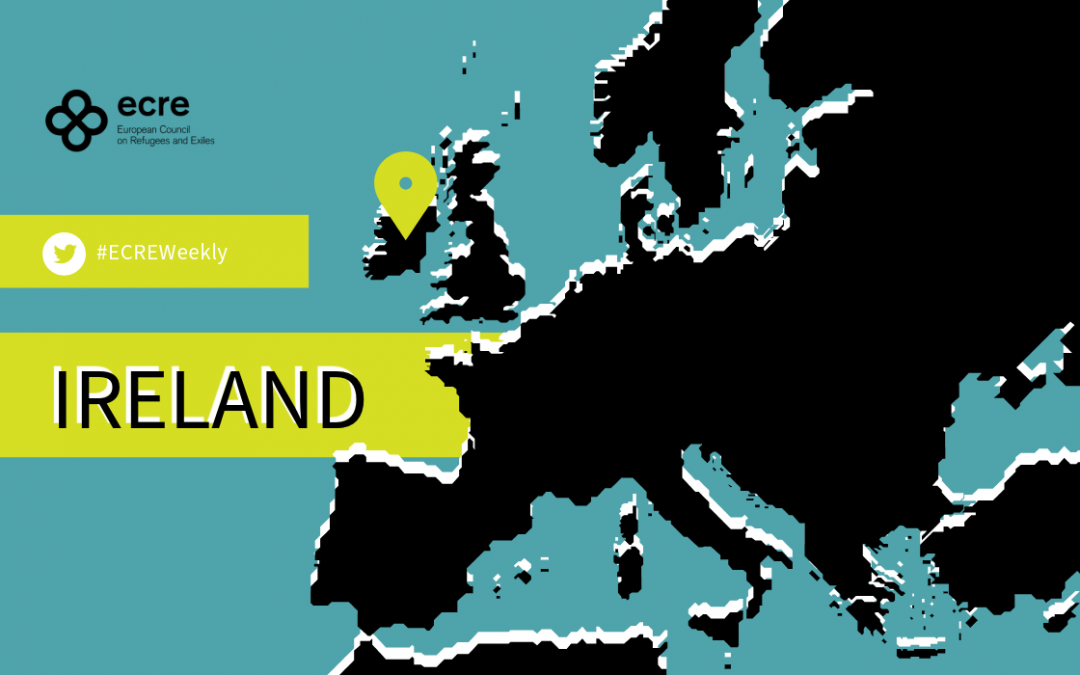- The number of protection applicants without accommodation has surpassed 3,000 and the situation has been exacerbated by the end of the government’s cold weather initiative.
- A new NGO report has revealed the “harrowing conditions” experienced by volunteers who help homeless protection applicants.
- The number of applications for international protection was almost halved between May and October 2024.
Ireland’s “no accommodation policy” for international protection applicants has reached a critical point, with over 3,000 individuals left without shelter a year after its instigation. This alarming situation has been brought into even sharper relief following the end on 4 December of the state’s cold weather initiative through which temporary accommodation had been provided at the Citywest Convention Centre since 15 November. Responding to the announcement by the Department of Integration (DoI) that the government would “no longer be providing temporary accommodation at Citywest to new applicants registering at the International Protection Office (IPO)”, the head of ECRE member organisation the Irish Refugee Council (IRC), Nick Henderson, expressed concern that “people who were accommodated in Citywest during the cold weather initiative will be placed back onto the streets” and that “people newly arrived will not be offered accommodation unless they are deemed vulnerable”. He also described the situation as a “direct affront to Ireland’s commitment to human rights and dignity,” adding that “Several High Court rulings have clearly stated the mandatory legal obligation to provide applicants with basic needs including accommodation and the insufficiency of the State’s current alternative offering”.
As the IRC predicted, more than 30 people seeking asylum spent the night of 4/5 December sleeping rough in Dublin city centre. The group pitched tents close to the Dáil (Irish Parliament) where they had spent the day protesting about the decision to force them to leave Citywest. One of the people who had had to leave Citywest told the RTE broadcaster: “We have so many vacant beds here so we are surprised, the place isn’t even full, and they still want [us] to vacate”. The DoI reportedly justified its decision on the grounds that it needed to reduce the numbers in Citywest in order to build some “surge capacity”, a claim described as “illogical” by Nick Henderson. “If this isn’t a surge capacity scenario, I don’t know what would be,” he said.
A new NGO report has revealed the “harrowing conditions” experienced by volunteers who help homeless protection applicants. According to the report, which was published by the IRC on 29 November, and which draws on testimonies gathered from 49 volunteers who had helped people seeking protection either on the streets of Dublin or in state-run emergency accommodation between January 2023 and October 2024, volunteers are regularly subjected to harassment, stalking, abuse, and violence from anti-migrant and far-right groups. In addition, it includes reports from female volunteers (who account for approximately two-thirds of the total number) that their safety is “most often threatened by people who are harassing and intimidating the applicants they are assisting” yet far-right agitators regularly claim to be “safeguarding women” from protection applicants. The report concludes with an urgent call for a “comprehensive response to the needs of homeless international protection applicants”, including the adoption of a “whole-of-government” approach, the enhancement of the cold weather emergency plan, a revision of the referral process, greater collaboration with community volunteer groups, a greater role for the police, improvements in emergency accommodation and increased financial support.
The number of applications for international protection was almost halved between May and October 2024. According to data published by the International Protection Office (IPO) in November, there were 1,053 applications in October compared to 2,010 in May. The leader of the Irish Green Party, Roderic O’Gorman, has suggested that the reduction may have been partly due to Ireland’s “changed relationship” with the UK following the latter’s change of government in July. “We’ve seen better engagement, and that’s one of the key reasons why the number of people seeking international protection right now is about half what it was earlier on in this year, because we are co-operating,” he told RTE on 25 November. However, it is unclear if the two issues are actually related as the IPO statistics also reveal that the number of applications in June (i.e. the month immediately before the UK general election) was already significantly lower than it had been in May (1,404) and it even increased in July (1,736).
Related articles
- AIDA Country Report on Ireland – 2023 Update (June 2024)
- Reception Crisis: Number of Asylum Applications Drops in Belgium as Reception Crisis Continues ― Number of Homeless Asylum Seekers in Ireland on the Rise ― UK High Court Asked to Oblige Government to Intervene in Accommodation Crisis for Unaccompanied Children ― Rights Organisations Accuse City of Paris of “Social Cleansing” Amid Forced Evictions (March 2024)

